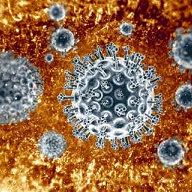San Francisco on Track to Eliminate Hepatitis C
San Francisco, CA, with the backing of generous state Medicaid coverage, believes it can wipe out hepatitis C in vulnerable populations including people with HIV, intravenous drug users, homeless people, and prisoners in the city's jails.

San Francisco, CA is having success finding patients who have the hepatitis C virus and getting them into treatment, Katie Burk, MPH viral hepatitis coordinator for the San Francisco Department of Public Health reports.
In a workshop held at the 20th Annual United States Conference on AIDS in Hollywood, FL, Burk said that unlike outreach centers in many parts of the US, her city’s health department has the advantage of a generous state policy toward getting Medicaid patients into HCV treatment early. The program is coordinated with HIV testing centers and other places doing outreach.
The most important thing it has going for it is California’s policy on giving the expensive direct acting HCV antivirals to Medicaid patients.
“We have unprecedented access to direct acting antivirals,” she said, “San Francisco wants to be the first city to eliminate HCV .”
Patients do not have to be at an advanced state of liver disease, nor do they have to prove they are not using drugs or alcohol.
Under MediCal, the state Medicaid program, nearly anyone with the HCV virus can get direct-acting antivirals, including IV drug users, people who are HIV positive, women of child-bearing age, and intravenous drug-users.
The policy shift happened in July, 2015, she said, “It was a game-changer for us.”
There are about 850,00 residents of San Francisco, and an estimated 22,500 are drug uses, 16,000 are HIV positive, and 7,000 are homeless.
“We do have increasing homelessness but they have good access to healthcare,” she said.
The city has 13 primary care centers and is training staff to treat patients for HCV, rather than leaving that to specialists.
“The primary care doctors love it,” she said, explaining that they find it satisfying to be able to cure a patient of a potentially fatal illness.
The city health department also has a partnership with jails, she said, and is able to test inmates.
Burk’s position is funded by US Centers for Disease Control and Prevention (CDC) money.
San Francisco has several advantages in starting city-wide screening and treatment, she added. It is geographically small, about seven miles square, a than makes it easier for patients to get from outreach centers and testing to medical appointments.
“It would be a lot hard in a sprawling city like Los Angeles, for instance,” she said.
In answer to questions from the audience about getting funding for HCV screening, she suggested they try and stretch their HIV treatment funds.
“Squeeze every cent out of every dollar you get for HIV,” she said.
She also advised using social media for education and advertising to make people aware they could have HCV and not know it but that treatment works. The campaign is online at www.EndHepCSF.org.